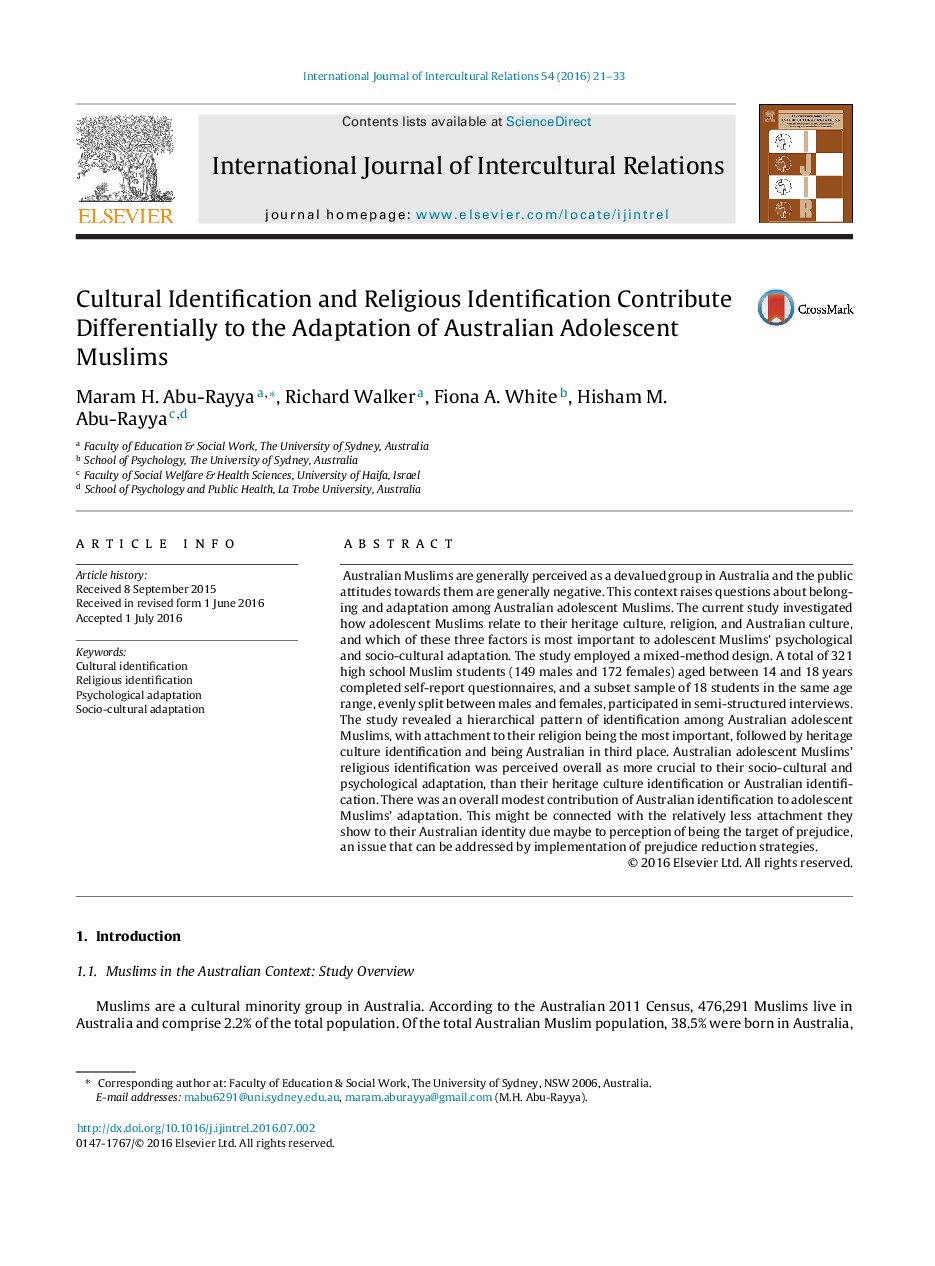| Article ID | Journal | Published Year | Pages | File Type |
|---|---|---|---|---|
| 946919 | International Journal of Intercultural Relations | 2016 | 13 Pages |
Australian Muslims are generally perceived as a devalued group in Australia and the public attitudes towards them are generally negative. This context raises questions about belonging and adaptation among Australian adolescent Muslims. The current study investigated how adolescent Muslims relate to their heritage culture, religion, and Australian culture, and which of these three factors is most important to adolescent Muslims’ psychological and socio-cultural adaptation. The study employed a mixed-method design. A total of 321 high school Muslim students (149 males and 172 females) aged between 14 and 18 years completed self-report questionnaires, and a subset sample of 18 students in the same age range, evenly split between males and females, participated in semi-structured interviews. The study revealed a hierarchical pattern of identification among Australian adolescent Muslims, with attachment to their religion being the most important, followed by heritage culture identification and being Australian in third place. Australian adolescent Muslims’ religious identification was perceived overall as more crucial to their socio-cultural and psychological adaptation, than their heritage culture identification or Australian identification. There was an overall modest contribution of Australian identification to adolescent Muslims’ adaptation. This might be connected with the relatively less attachment they show to their Australian identity due maybe to perception of being the target of prejudice, an issue that can be addressed by implementation of prejudice reduction strategies.
